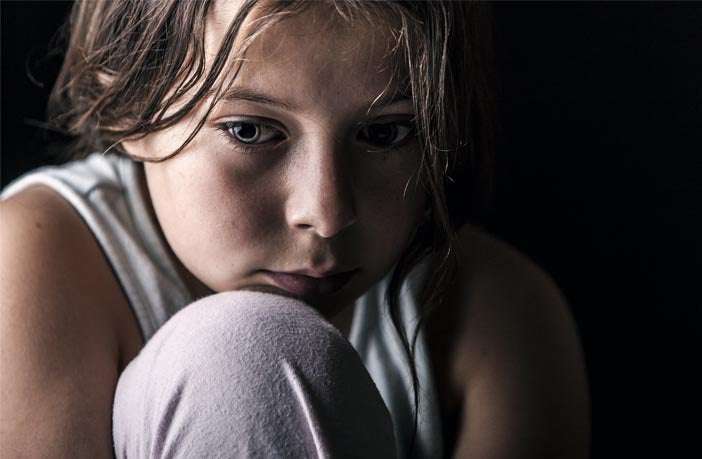The child of an individual who was maltreated during childhood is also more likely to be maltreated, study finds
New research indicates that childhood maltreatment is shared across generations. The study, which appears in the journal Development and Psychopathology, also suggests that borderline personality disorder is a risk factor associated with the transmission of childhood maltreatment.
“Childhood maltreatment is unfortunately common (e.g., by age 18 over 37% of children in the US are investigated for maltreatment with one third of these cases being substantiated) and is among the strongest predictors of later physical and mental health problems,” said study author Ryan Bogdan, an associate professor who directs the Behavioral Research and Imaging Neurogenetics (BRAIN) lab at Washington University in St. Louis.
“Decades of observations have revealed that childhood maltreatment tends to run in families. If we can identify factors associated with the intergenerational transmission of childhood maltreatment, interventions may be developed and implemented to limit its influence on the next generation,” added co-author Sarah Paul, a graduate student.
The researchers found evidence for the intergenerational transmission of childhood maltreatment after surveying 364 older adults and 573 of their adult children. The participants were asked to report a wide variety of childhood maltreatment, including sexual abuse, emotional neglect, emotional abuse, physical abuse, and physical neglect.
“Childhood maltreatment is shared across generations; that is, the child of an individual who was maltreated during childhood is also more likely to be maltreated,” Bogdan told PsyPost.
“We found almost no evidence that specific forms of maltreatment are uniquely shared – for example, if a parent was physically abused as a child, their child is more likely to experience some form of maltreatment, but not necessarily physical abuse.”
The researchers also found evidence that a personality disorder was linked to the intergenerational transmission of childhood maltreatment.
“Most interestingly we found that parental borderline personality pathology, which is characterized by distress intolerance, affective instability, impulsivity, and unstable interpersonal relationships, may potentially contribute to the intergenerational transmission of childhood maltreatment,” Paul explained.
“But we do not know which aspects of borderline personality contribute to this association – it could be that these parents are more likely to be the perpetrators of abuse, but it is also possible that the family may be exposed to other perpetrators through unstable relationships.”
“Regardless, it is possible that that receiving treatment for symptoms of borderline personality pathology (e.g., perhaps dialectical behavioral therapy, an empirically supported treatment for borderline personality and other disorders) may help reduce childhood maltreatment risk for children,” Paul told PsyPost.
All research includes limitations, however, and the current study is no exception.
“The intergenerational transmission of childhood maltreatment is a complex, multifaceted construct. Borderline personality pathology is neither necessary nor sufficient for it to occur,” Paul said.
“Further, while these associations allow for potential speculation about causality, our study only shows correlation. It is possible that childhood maltreatment and borderline personality pathology may influence one another, but it could also be that borderline personality pathology, which is heritable, is passed from parent to child; the child’s pre-symptomatic behavior might evoke harsher childhood environments.
“For example, if a kid is being impulsive and having tantrums, they may be more likely to be abused. We hope that future research can better disentangle the features of borderline personality pathology that may contribute to the intergenerational transmission of childhood maltreatment, use multiple measures of maltreatment to better ensure accuracy in those estimations, and include more than two generations of participants in order to gauge the factors that may be the most enduring over time,” Paul added.
The study, “The intergenerational transmission of childhood maltreatment: Nonspecificity of maltreatment type and associations with borderline personality pathology“, Sarah E. Paul, Michael J. Boudreaux, Erin Bondy, Jennifer L. Tackett, Thomas F. Oltmanns and Ryan Bogdan.

bitcoiner21 on August 11st, 2019 at 03:28 UTC »
Breaking a cycle and you constantly have anxiety because you feel you’re slipping into the cycle
Shadowghoul on August 11st, 2019 at 02:21 UTC »
This has been known for a while I feel like. There is a book called Call Me Tuesday about a first hand account of child abuse. In her follow up book, Call Me Cockroach, she talks about how abused children are more likely to be abusive themselves and the toll that abuse has on her adulthood life.
mlperiwinkle on August 11st, 2019 at 00:20 UTC »
Licensed secular therapy. Lots of it. We need this in our country. We need healing from trauma to end this cycle.